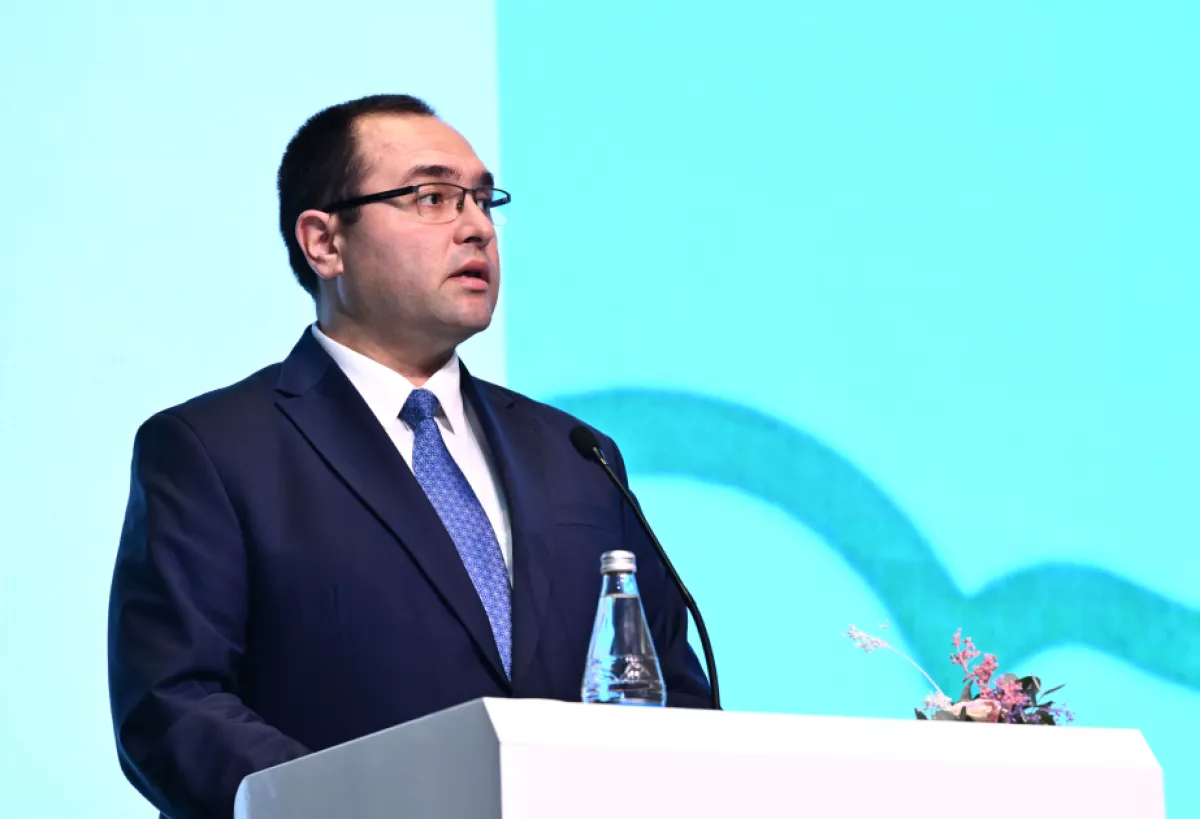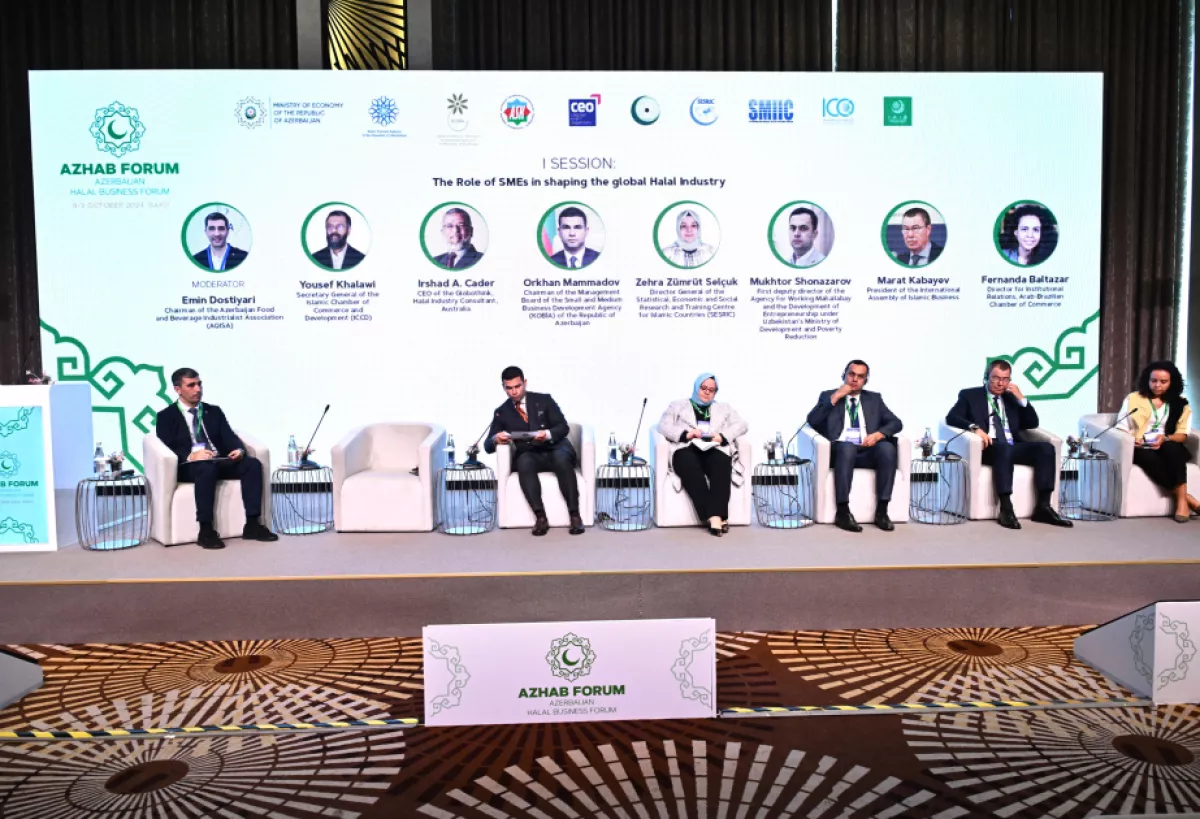Tapping into trends: Azerbaijan's ambitious step into halal food scene Tasting the future
In the past decade, the halal food sector has emerged as one of the most rapidly expanding segments of the global food market. Although Azerbaijan's halal food industry is still in its nascent stages, recent developments indicate a positive trajectory. Recently, Baku hosted the two-day "Azerbaijan Halal Business and Tourism Forum" (AZHAB Forum), supported by the Ministry of Economy, the Small and Medium Business Development Agency (KOBIA), and the State Tourism Agency. The forum brought together officials, representatives from international organizations, and businesses from approximately 20 countries.
Globally, there are over fifty countries with predominantly Muslim populations, and by the end of 2024, the total number of Muslims is projected to exceed 2 billion — making up about a quarter of the world's population. A key aspect of Islamic tradition is the regulation of food consumption, encapsulated in the concept of halal. This includes prohibitions on alcohol, pork, animal blood, and certain types of fish (those without scales) in culinary practices. Halal standards also dictate the methods of slaughtering, processing, and storing meat from animals and birds. In recent years, guidelines for the industrial processing of halal food products, along with regulations for storage and logistics, have been established. Furthermore, participants in the halal industry prioritize the use of organic raw materials and aim to minimize the incorporation of chemicals and synthetic substances in their production processes.
Despite the complexities introduced by the implementation and strict adherence to halal food standards, interest in this sector is on the rise every year. This trend is not limited to countries with deep-rooted Islamic traditions; non-Muslim countries, particularly Australia, Brazil, New Zealand, India, and several regions in Europe, are also showing significant interest. In the post-Soviet space, the halal food market is being actively developed in Russia (notably in Tatarstan), Kyrgyzstan, Uzbekistan, and especially Kazakhstan, which has established a robust export of halal products to international markets.
The driving force behind this growing interest lies in the lucrative opportunities and impressive growth potential of the halal products market. The global halal food market was valued at $500 billion in 2009, and according to the State of the Global Islamic Economy Report, it is projected to reach $2.4 trillion by the end of 2024 — an almost fivefold increase. This surge means halal products will comprise over a fifth of the global food market, creating a vast and rapidly expanding sector that numerous food producers are eager to enter.

“There is an increasing global interest and demand for halal food products, including in Azerbaijan. Recently, we have seen a rise in tourist arrivals from Muslim countries, highlighting the need to develop our halal product sector and establish halal tourism standards,” stated Azerbaijani Agriculture Minister Mejnun Mammadov during his address at the AZHAB Forum in Baku. He emphasized that the growth of entrepreneurship, coupled with strong state support for the agricultural sector, creates a conducive environment for advancing the halal food and tourism industries.
Mammadov highlighted that producers and trading companies have a primary obligation to provide consumers with healthy food and ensure compliance with safety standards for agricultural and food products. He noted that organizing processing operations in accordance with halal standards would enhance farmers' and entrepreneurs' incomes by creating a value chain and boosting export potential in this market segment.
A significant step towards achieving these goals is the AZHAB Forum, taking place on October 8-9, which will feature a specialized exhibition showcasing halal products and services. The event will include discussions and sessions with international experts from countries such as Saudi Arabia, Malaysia, Indonesia, Türkiye, Azerbaijan, Pakistan, Russia, and Uzbekistan, focusing on halal finance, tourism, pharmaceuticals, textiles, food, and other sectors.
Although several producers in Azerbaijan have previously claimed to include halal products in their offerings, there has been no objective assessment to confirm compliance with the necessary production standards. The absence of unified industry standards and effective monitoring mechanisms has created challenges in exporting certified halal products. However, specialists from the Food Safety Agency of Azerbaijan (FSAA), responsible for ensuring adherence to sanitary and epidemiological norms in food production and trade, are taking steps to address these gaps.
“Halal product certification in Azerbaijan will be categorized into four areas: the slaughter of cattle, poultry, milk and dairy products, and processed goods,” announced Goshgar Tahmazli, head of the Azerbaijan Halal Certification Organization (APBA), during the forum. He elaborated that efforts are underway to streamline the application process, implement innovative communication solutions for public catering entities, and establish certification and arbitration committees to facilitate the halal certification process.
Tahmazli also emphasized that to achieve international recognition of the Food Safety Institute's HALAL certificate of conformity, an application has been submitted to Türkiye's Halal Accreditation Body in line with the international standards set by the Standards and Metrology Institute of Islamic Countries (SMIIC). As part of the accreditation process, an initial audit of the certification procedures adhering to the relevant standard (OIC/SMIIC-1:2019 - General Requirements for Halal Food) was conducted at one of the country’s meat processing facilities.

Azerbaijan is set to advance its halal industry through a strategic partnership with Türkiye, with plans to develop a unified halal brand aimed at facilitating Azerbaijani producers' access to markets within the Organization of Islamic Cooperation (OIC) member states. Deputy Economy Minister Samed Bashirli highlighted that expanding transportation and trade connections is vital for enhancing cooperation in the global halal market: “Azerbaijan has established preferential trade agreements with two OIC member countries — Türkiye and Pakistan.”
Zehra Zümrüt Selçuk, Director General of the Statistical, Economic, and Social Research and Training Center for Islamic Countries (SESRIC), emphasized the significance of Azerbaijan's halal industry in fostering deeper integration into global markets and strengthening trade relations with Islamic nations. “SESRIC specialists are prepared to collaborate with Azerbaijan on joint projects in the halal sector, enhancing relevant training programs and practices to position the country as a leader in the global halal market,” she stated.
The hospitality sector presents another promising avenue within the global halal industry. Ihsan Ovut, Secretary General of the Standards and Metrology Institute of Islamic Countries (SMIIC), asserts that Islamic nations, including Azerbaijan, can bolster their presence in the global recreational market by enhancing halal tourism standards. “It is essential for Azerbaijan to broaden its tourism potential in the halal sector by offering products and services that align with international standards. Given the vast potential of tourist destinations, SMIIC is ready to support Baku's initiatives in this direction,” he stated.
Fernanda Baltazar, Director of Institutional Relations at the Arab-Brazilian Chamber of Commerce, echoed this sentiment, highlighting Azerbaijan's considerable potential in halal tourism. She noted that developments in this area could position the country prominently within the tourism sector: “The Chamber greatly values the strides Azerbaijan has made in this field and sees significant opportunities for closer cooperation in the future.”
It’s important to mention that Azerbaijan is considering the introduction of a “Halal Hotel” certification for tourist facilities following the establishment of a new state standard for halal tourism services. This initiative is expected to attract substantial tourist traffic from Arab and Central Asian countries, as well as Iran and Türkiye, which will serve as a robust client base for domestic halal hotels.








